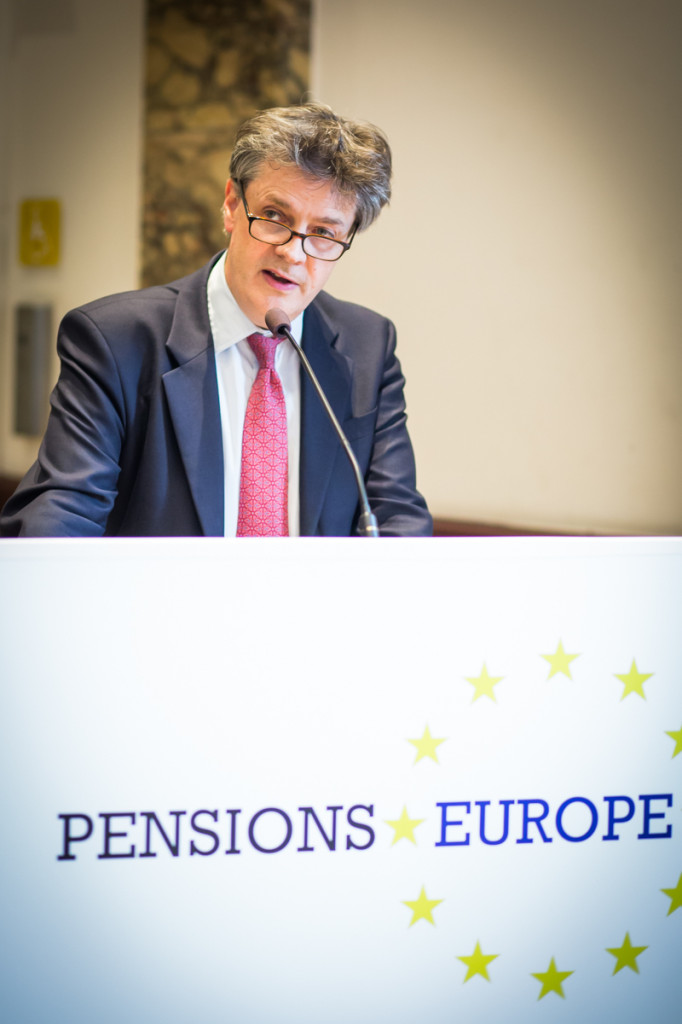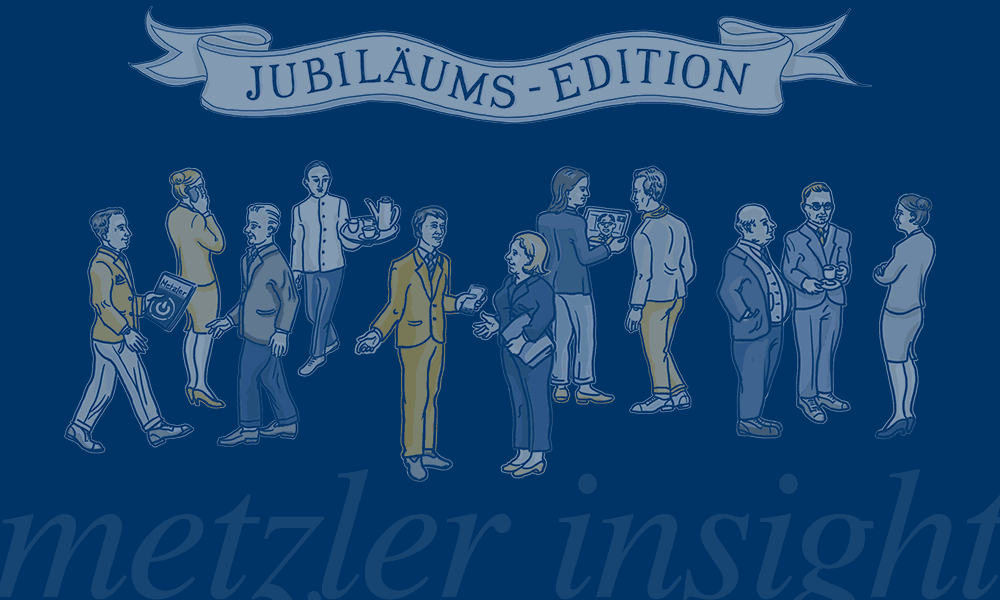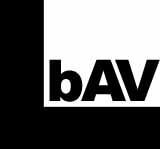24. Juni in Brüssel: Der europäische bAV-Verband PensionsEurope hält seine große 2015er-Konferenz „Pensions and the new start for Europe: Growth and prosperity for all“ ab. Am Vorabend sprach EU-Kommissar Hill zu den Teilnehmern. Die Sorgen des Parketts kennt er offenbar.
Heute Auszüge aus der Rede Jonathan Hills, European Commissioner for financial stability, financial services and capital markets union und damit auch verantwortlich für die für die bAV zuständige Abteilung D 4 (weiland H 5).

Hill zur Kapitalmarktunion
„The ratio of retired people to workers is set to double within the next 35 years, so there is a huge challenge to overcome. And as guardians of one of the biggest sources of finding in Europe, you are responsible for some 3.5 trillion euros worth of assets. So you have a highly important role to play both in capital markets and to society more widely.
[…]
At its most simple, the aim of the Capital Markets Union is to link savings with growth more effectively. It will provide more options and better returns for savers and investors. It will offer businesses more choices of funding at different stages of their development. It will channel investment to where it can be used most productively, increasing the opportunities for Europe's companies and infrastructure projects. It will also help to ensure that the financial system supports growth and jobs and helps with these demographic challenges, it will help spread risk and thus reinforce financial stability.
[…]
Pension funds are one of the biggest potential sources of funding for equity and infrastructure investments. Personal pensions, too, offer the potential to inject more savings into the capital markets and channel additional financing to productive investments.“
Hill zu Personal Pensions
„Growing personal and occupational pension provision in Europe should lead to a bigger flow of funds into a wider range of investment opportunities and encourage a move towards market-based financing.
[…]
I know that you are concerned that the development of personal pensions could undermine the crucial role of state and workplace pensions. My message to you is that we need to focus on increasing the overall size of the pension industry, and on widening the choices available. Future pensioners should be able to diversify risks across a broad multi-pillar pension system, mixing retirement income from state, workplace and personal pensions.
[…]
Within the CMU, workplace pensions have a key role. Today only 40% of the EU labour force has access to a workplace pensio, and we need to increase this figure if we can.“
Hill zur Pensionsfondsrichtlinie und dem Holistischen Bilanzansatz
„Just to be clear, IORP 2 does not propose a harmonisation of solvency rules. The proposal seeks to ensure that funds collected are managed prudently and achieve the best possible returns for scheme sponsors and members. The proposal therefore focuses on good governance and transparency. It also stresses that pension funds are permitted to invest in assets with a long-term economic profile on unregulated markets.
I am aware that you continue to be concerned about the holistic balance sheet and the envisaged stress test. But this is a separate exercise, in the form of work being carried out by the European Insurance and Occupational Pensions Authority, EIOPA […]. For my part, I look forward to hearing what recommendations EIOPA has to make on this, and will judge them on their merits. I want to stress that no decisions have been taken on this, and we will listen carefully to your views.“
Hill zu EMIR
„Finally, I know that you are also concerned about EMIR. You will be glad to hear that I have proposed an extension of the temporary exemption by another two years. The Commission will continue to think about this issue as part of the overall review of EMIR.“
Hill zu seiner grundsätzlichen Überzeugung
„In all the work going forward: on personal pensions; on IORP 2; on EMIR; on all aspects of the portfolio, my approach to regulation is the same. I want to balance reducing risk with enabling growth. I will examine proposals put to me on their merits, and will bear in mind the likely impact on the wider economy, including growth, investment and jobs. The first part of my very long job title is financial stability, but today I think that one of the greatest threats to financial stability is the lack of jobs and growth.
[…]
My hope is that as custodians of these enormous funds, you will make full use of your capacity to invest in long-term assets; and by making pension funds a key part of the Capital Markets Union, help us drive job creation and growth in Europe.“
Es ist nicht das erste Mal, dass Hill sich zum betrieblichen Pensionswesen äußert. Im April erst hatte er in Edinburgh vor der NAPF (National Association of Pension Funds, dem britischen Pendant zu deutschen aba) gesprochen – ebenfalls über Kapitalmarktunion, IORP II und EMIR.
Anmerkung der Redaktion: Der Autor des Beitrags hatte geplant, von London aus nach Brüssel zu reisen, um dort der Konferenz persönlich beiwohnen und aus erster Hand berichten zu können. Streiks und Zwischenfälle auf französischer Kanalseite zwangen den genutzten Eurostar-Zug von London nach Brüssel jedoch zur Umkehr, so dass dem Autor eine Teilnahme nicht möglich war. Die Aussagen Hills entstammen daher seinem Redemanuskript. Wir bitten um Verständnis.





